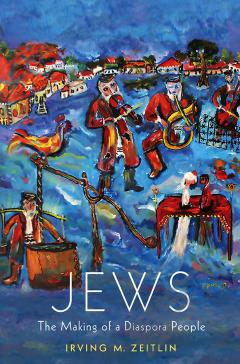Inventing the Jew
Inventing the Jew follows the evolution of stereotypes of Jews from the level of traditional Romanian and other Central-East European cultures (their legends, fairy tales, ballads, carols, anecdotes, superstitions, and iconographic representations) to that of high cultures (including literature, essays, journalism, and sociopolitical writings), showing how motifs specific to folkloric antisemitism migrated to intellectual antisemitism. This comparative perspective also highlights how the images of Jews have differed from that of other strangers such as Hungarians, Germans, Roma, Turks, Armenians, and Greeks. The gap between the conception of the imaginary Jew and the real Jew is a cultural distance that differs over time and place, here seen through the lens of cultural anthropology. Stereotypes of the generic Jew were not exclusively negative, and are described in five chapters depicting physical, occupational, moral and intellectual, mythical and magical, and religious portraits of the Jew.
{{comment.content}}








 京公网安备 11010802027623号
京公网安备 11010802027623号